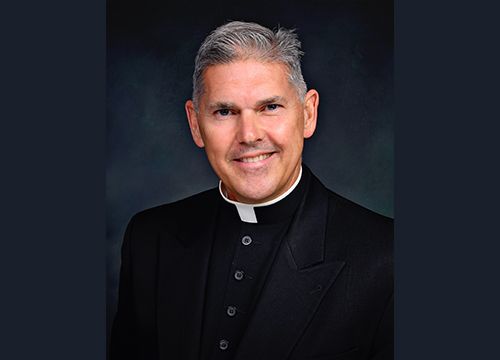Sixth Sunday in Ordinary Time Sir 15:15-20 Ps 119:1-2, 4-5, 17-18, 33-34 I Cor 2:6-10 Mt 5:17-37 or 5: 20-22A, 27-28, 33-34, 37
Even though I have been a priest for nearly 25 years, I still remember what it was like to sit in the pews to listen to a homily. One of the approaches I would hear — an approach that kind of took the life out of any homily — was when the priest would reduce Jesus’ words to merely teaching us how to act.
The Gospel is supposed to be how we encounter the person of Jesus, not merely to present him as a teacher of ethics. The danger is that if Jesus is presented in this way, he just becomes one more teacher among many.
The Sermon on the Mount is more than an ethical code, but today’s Gospel has the danger of being communicated in that way.
Where then is the bite of this Gospel? If I were a first century listener of Jesus, what would be my first question?
That question would be: Who is this rabbi who makes his interpretation of the law, indeed a rewriting of the law, on the par with the law given by God to Moses?
To answer that question, we must go to the heart of the Sermon on the Mount. Without going into a whole dissertation on the sermon, the Lord’s Prayer is at its very heart.
Jesus is teaching us to pray as he prays. Jesus is revealing his very identity in the Our Father and inviting us into that identity. That is how we answer the question: Who is this that is teaching in this way?
We are encountering the God/man who is offering us his very life. So, this is how to deepen that encounter with Jesus, the son of God, and with the Father. We go to the heart of the law that God has planted into our hearts.
Jesus is telling us not just to look at the letter of that law, but if we want God to penetrate our hearts, fill our lives and enliven our souls, then we must go deeper to the fuller meaning of his will for us — to understand the deep law of God the Father in the position of being in union with Jesus Christ, as son or daughter.
When I understand that the commandment not to kill or harm or denigrate another human being helps me to encounter God in all of his sons and daughters, I learn to love like God.
When I understand that I can never use another person in any way that treats them as an object, I am loving as God loves.
When I understand that my permanent covenant as priest with the people of God as a spouse, or your covenant with your spouse, is only a hint of the permanent, loving and unbreakable covenant that God has made with each one of us, we are learning to be loved by God.
When all this happens, we are no longer following a code of conduct, we are encountering a person. It is not about following the rules. It is about living in a way that I am conforming myself with the life of my beloved who gives me the necessary help to live that life of love.
Msgr. Timothy Keeney is pastor of Incarnation, Charlottesville.

